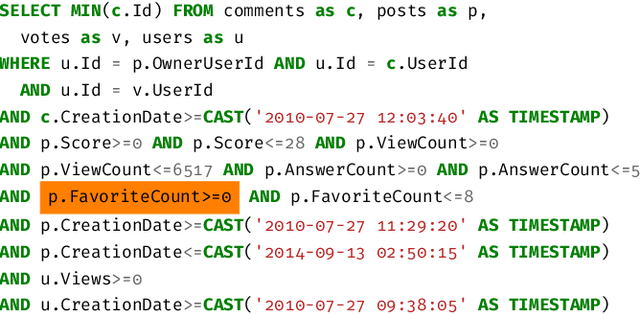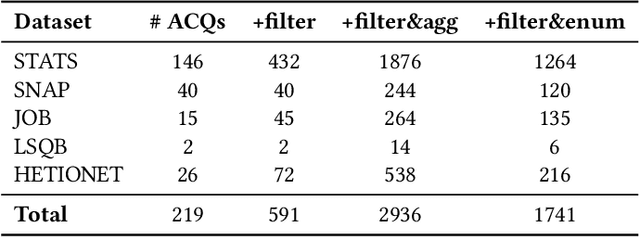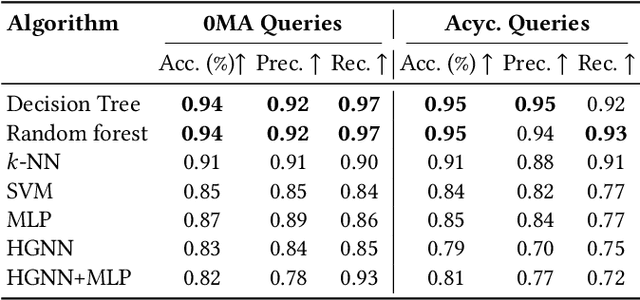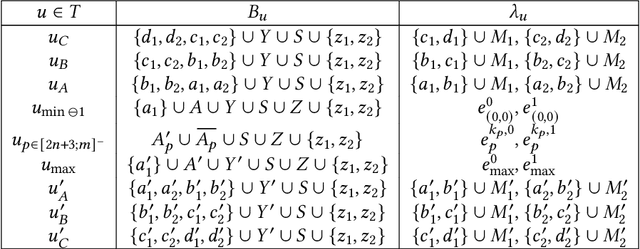Cem Okulmus
Selective Use of Yannakakis' Algorithm to Improve Query Performance: Machine Learning to the Rescue
Feb 27, 2025



Abstract:Query optimization has played a central role in database research for decades. However, more often than not, the proposed optimization techniques lead to a performance improvement in some, but not in all, situations. Therefore, we urgently need a methodology for designing a decision procedure that decides for a given query whether the optimization technique should be applied or not. In this work, we propose such a methodology with a focus on Yannakakis-style query evaluation as our optimization technique of interest. More specifically, we formulate this decision problem as an algorithm selection problem and we present a Machine Learning based approach for its solution. Empirical results with several benchmarks on a variety of database systems show that our approach indeed leads to a statistically significant performance improvement.
Incremental Updates of Generalized Hypertree Decompositions
Sep 21, 2022



Abstract:Structural decomposition methods, such as generalized hypertree decompositions, have been successfully used for solving constraint satisfaction problems (CSPs). As decompositions can be reused to solve CSPs with the same constraint scopes, investing resources in computing good decompositions is beneficial, even though the computation itself is hard. Unfortunately, current methods need to compute a completely new decomposition even if the scopes change only slightly. In this paper, we make the first steps toward solving the problem of updating the decomposition of a CSP $P$ so that it becomes a valid decomposition of a new CSP $P'$ produced by some modification of $P$. Even though the problem is hard in theory, we propose and implement a framework for effectively updating GHDs. The experimental evaluation of our algorithm strongly suggests practical applicability.
The HyperTrac Project: Recent Progress and Future Research Directions on Hypergraph Decompositions
Dec 29, 2020



Abstract:Constraint Satisfaction Problems (CSPs) play a central role in many applications in Artificial Intelligence and Operations Research. In general, solving CSPs is NP-complete. The structure of CSPs is best described by hypergraphs. Therefore, various forms of hypergraph decompositions have been proposed in the literature to identify tractable fragments of CSPs. However, also the computation of a concrete hypergraph decomposition is a challenging task in itself. In this paper, we report on recent progress in the study of hypergraph decompositions and we outline several directions for future research.
 Add to Chrome
Add to Chrome Add to Firefox
Add to Firefox Add to Edge
Add to Edge